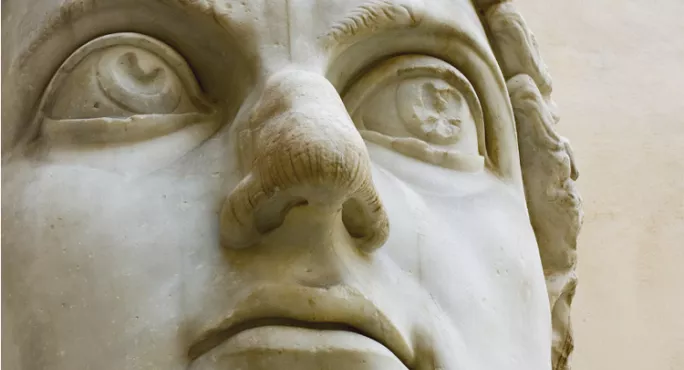Reading the excellent TES article on the downfall of the “Famous Five”, one might be forgiven for thinking that the whole education system is rank with corruption. How likely is it otherwise that a selection of school leaders, singled out for praise by ministers, could have had such a high rate of succumbing to scandal?
I don’t for a second believe that that is the case. Over the past few years, I have worked with hundreds of executive heads and multi-academy trust chief executives who have been driven only by the best of intentions. So how is that that Michael Gove was so good at plucking out the bad apples from the barrel?
Back in 2003, while working in the Department for Education, I was asked to write a few speeches for David Miliband, who was schools minister at the time. We would discuss the overall theme of the speech and I would source content from policy teams to be edited - all fairly straightforward stuff for an eager civil servant.
However, he was always very keen to have a few local references at the start and end of every speech. He had a superb knowledge of politics and local history; but what he needed were examples of local schools to which he could refer. This proved to be far more difficult - both local authorities (remember them?) and Ofsted were reluctant to pick out schools to be exemplified, and there wasn’t an obvious alternative body to approach.
Fast-forward to 2010 and the arrival of Michael Gove, who had clearly decided that citing a myriad of real-life examples was an essential component of every speech.
Maybe it was his journalistic background and a belief in the power of stories; maybe it was a rhetorical device to demonstrate the depth of his support within the profession; maybe there just wasn’t enough credible policy detail to fill out a whole speech. Whatever the reasons, Gove’s speeches were always chock-full of references to individual leaders and teachers.
And by 2010, it was much easier to source these examples. You didn’t have to go out and ask local authorities; they were there for the taking on social media, promoting their achievements and their opinions to anyone with a decent smartphone and time on their hands.
‘You’re one of the elite - the chosen’
And once you’re mentioned in a ministerial speech, the Whitehall copy-and-paste machine will pick up the reference and run with it. You become part of the standard briefing pack; your achievements echoed in speech after speech; you get invited to share your story on the party conference platform and are namechecked in Prime Minister’s Questions. Wherever an example is needed to back up a policy or rebut an argument, you stand ready to serve.
From there, it’s only a short step to “tsardom” - membership of influential boards and august committees passing judgement on the big issues of the day. You have the ear of the secretary of state; you are one of the elite, the chosen.
Is it really surprising that a group of people who chose to promote themselves in the first place and were then feted time and again by politicians might end up believing that they were untouchable? There is an element of Greek tragedy in all of this: the hubris of the hero who discovers that the virtue that made him (and they are nearly all men) stand out in the first place is also destined to become his fatal flaw.
A very wise ex-head I know warns of the dangers that ensue when leaders “drink their own bathwater”. Good advice, but it’s harder to stay humble when that sweet bathwater has been sweetened still further with a healthy dollop of the minister’s honeyed praise.
The Centre for High Performance’s report on the five archetypes of school leaders suggests that those who should be exemplified are, actually, the architects: quiet, industrious headteachers who plan their schools over time and prefer the dull glow of the laptop to the glare of the limelight.
And my experience of working with hundreds of would-be headteachers was that the best were usually those who had to be persuaded to step forward and often doubted their ability to do the job.
So my advice to Justine Greening: think carefully before anointing the next educational hero. There’s a good reason that sainthood can only be conferred after death…
Heath Monk is the executive director of the Schools of King Edward VI in Birmingham

